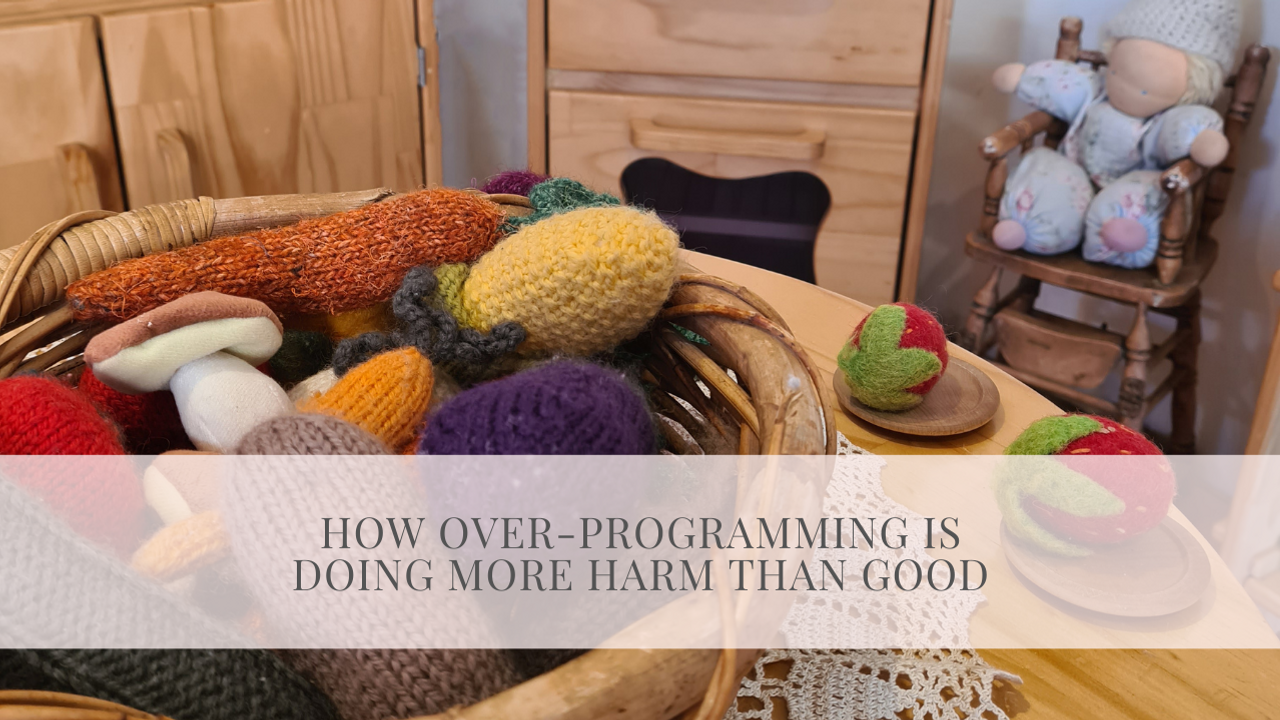
The role of an early educator comes with many challenges, there’s no doubt about it.
You’re simultaneously trying to support the implementation of an approved learning framework, support the children’s wellbeing, learning and development, whilst also providing care and fostering positive relationships.
There’s a lot going on.
But there’s also a lot of joy that comes with the role – otherwise you wouldn’t do it. You genuinely nurture the little people in your care and want the best for them.
As an early educator, you have an opportunity to innovatively plan your programming and conduct deep dives into each of the core areas whilst also making it about play for the children in your care.
I’ve spoken previously about the importance of rhythm.
Children thrive when there’s routine and rhythm that they feel they can consistently rely on and whilst they do adapt to changes fairly well, a perceived small change to an adult can actually be experienced as a big change to a child.
As an early educator, the most effective way to manage this is by having touchstones throughout the day and the week which are things that just regularly happen - no matter what. These things are what children will quickly rely on and draw their sense of security from.
By doing so, when it comes to programming you can be innovative in your approach and actually minimise over-programming.
Over-programming can actually lead to overwhelm for children and then they aren’t able to effectively learn the skills you’re trying to teach them.
By thinking critically about what you need to incorporate whilst keeping the programming as simplistic as possible, you create a space for the little people in your care to thrive.
Here’s an example of what a programme might look like:
Monday – Baking day
Tuesday – Washing and polishing day
Wednesday – Painting day
Thursday – Craft day
Friday – Gardening day
Looks bland, doesn’t it? But, when you deep dive into each activity you start to see how enriching and holistic it can be.
Now, before you get stuck on the idea of thinking that the children are going to miss out if they don't attend on those days, what you do is at the end of the season is swap those days around.
So, the idea is that each day that the child is in care for that full season of 12 weeks, they will have a deep dive into that particular aspect of work.
For example, if Monday is baking day you can actually weave in literacy and numeracy whilst cooking.
So, if you're saying Monday's baking day, what you're actually doing is covering off so many key areas such as literacy and numeracy through cooking. You can cover every quality area in that baking experience whilst the children enjoy the art of play simultaneously.
Same goes for every other day and corresponding activity. By having intentional teaching you’re creating a map for the children that aligns with the learning framework but they are engaged and thriving because it’s simplistic and fun.
The result for you is you become more relaxed and organised because you don’t have an overwhelming list of things you have to provide.
It’s a very interesting topic to cover and I think a lot of people have bought into this idea that we have to just keep providing, providing, and providing more for children, but we're actually doing them a disservice when we aren't allowing them to create and resource their own learning.
So, over to you – I’d love to hear your thoughts and questions about this so feel free to pop a comment below.

